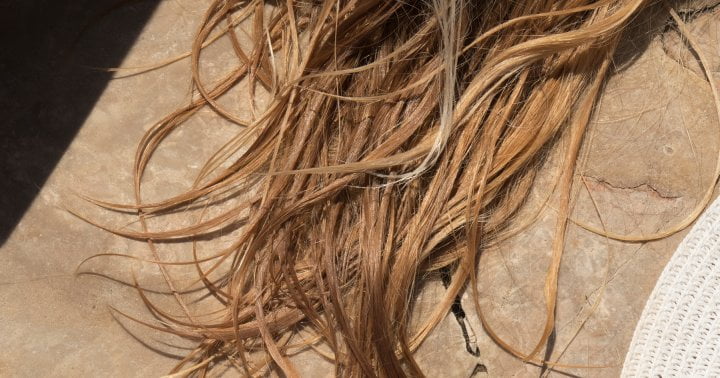The Weird Reasons Your Hair Is Duller Post-Winter & How To Revamp It

Here’s the deal: Your skin and hair change with the surrounding environment. As both are outward-facing, they come into contact with a wide variety of stressors that affect their health and appearance. And so when our skin and hair reflect seasonal or environmental changes, it should come as no surprise that we may need to make tweaks to our routine to help our bodies respond to these external aggressors.
So what’s the deal with winter and hair? Well, it comes down to a few factors. The most obvious is the weather. There are two reasons, actually: When outside, arid, cold air can make strands more brittle and damage-prone. Then when we retreat indoors, the cranked-up heating systems can dehydrate the hair, too. It’s this one-two punch of oscillating temps that really does you in. “In the winter your hair is exposed to radiator heat; car heat; dry, cold fresh air,” says stylist Leonardo Manetti of Rob Peetoom in Brooklyn. “Thus, in the winter it’s most likely to be dryer; this can cause extreme dryness or static in hair depending on the texture.”
Additionally, you likely are turning up the temp in your showers (perhaps unknowingly), which can dull out hair. “In the winter, you are dealing with hotter water being used in the shower,” says Megan Taylor, stylist at Gloria and Company in Fairhaven, Massachusetts.
And while those are the main reasons your hair zonks out this time of year, there are a few weird reasons you may be experiencing some dullness. First, hat hair can make strands more static or lifeless. Or product buildup from dry shampoos may be mattifying the strands—since people may be stretching time between washes during these months. Buildup may even come from overusing styling creams and serums, especially those that sit on top of the strand and don’t easily rinse out (read: those with silicones). Not to mention: You may be due for a trim, as damage and split ends can make hair appear more disheveled.
This article was originally published by mindbodygreen.com. Read the original article here.




